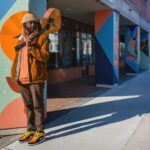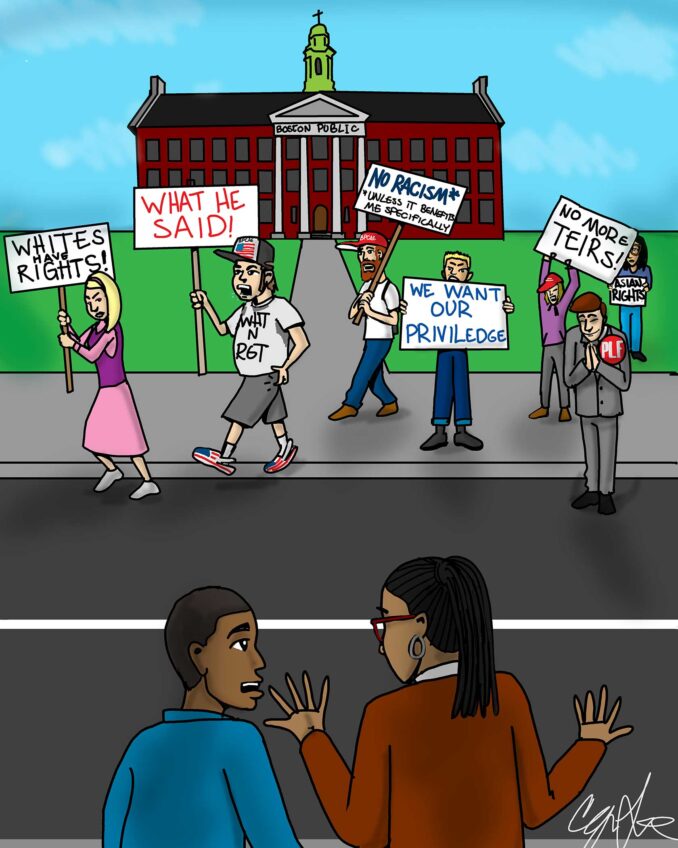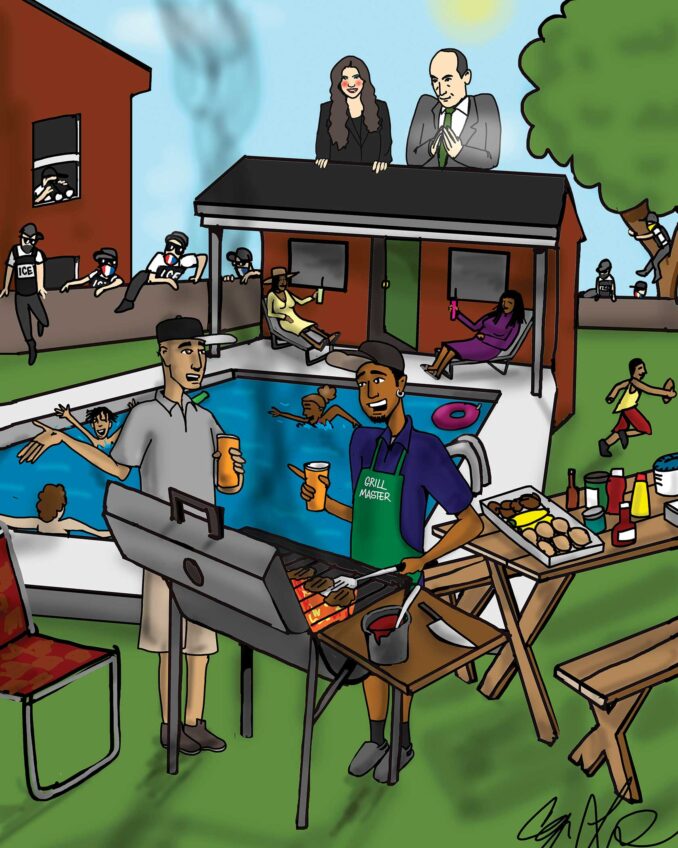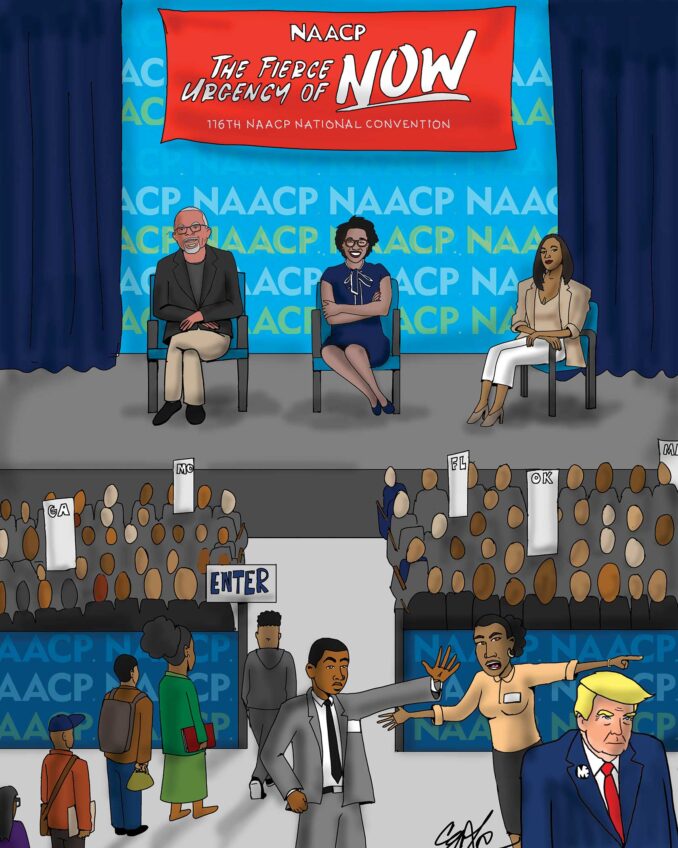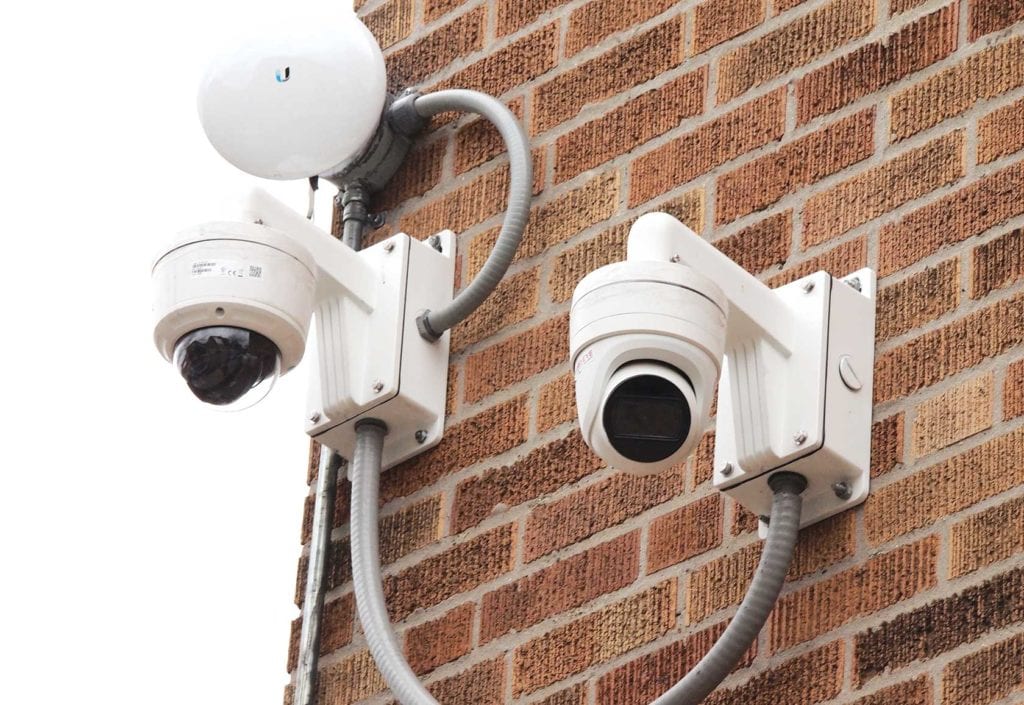
Governments around the world are responding to the COVID-19 pandemic with an unprecedented use of surveillance tools. In Moscow, for example, officials are enforcing quarantine orders with cameras across the city. The cameras are linked to face surveillance technology that scans residents’ faces and monitors where they go. These surveillance tactics not only threaten civil liberties for everyone, but disproportionately produce false positives when surveilling the faces of people of color. They also undermine public health, as public trust is essential during the pandemic and afterwards.
Thankfully, Boston is not using dangerous technology to enforce public health advisories or track people who are sick. But just as alarming is the rate at which coronavirus is deepening long-standing disparities and structural racism in our city, with communities of color bearing the burden of this pandemic. Our response must not only address immediate relief, but also build trust and community for a better post-pandemic world.
That’s why together we are filing legislation to subject any city surveillance practices to rigorous transparency, accountability and oversight. That includes adding parameters on information-sharing by School Police to protect our students from the school-to-deportation pipeline and imposing an outright ban on discriminatory face surveillance technology.
Community members have been advocating for surveillance oversight since long before the coronavirus. Whether for drones, body-worn cameras, or tracking technology that any city department might contemplate using, the purchase or use of surveillance technology should be safeguarded with clear policies approved through public process.
Boston Police Department leadership has joined community advocates in expressing concern about face surveillance, particularly the bias against communities of color that has been documented. One study from the National Institute of Standards and Technology found that the technology “falsely identified African American and Asian faces 10 times to 100 times more than Caucasian faces.” At a time when communities of color are faced with the latest brutal effects of long-standing inequities in our society, the last thing we need is to introduce a new stress factor for black, Latinx, and Asian American residents. As representatives of these communities, we are committed to fighting for racial equity, now more than ever.
Despite all its dangers and flaws, there are no state or federal laws governing the use of face surveillance technology. According to public records unearthed by the ACLU of Massachusetts, the Registry of Motor Vehicles has been using face surveillance since 2006 and regularly grants requests from state and federal agencies to run warrantless scans on millions of commonwealth residents with driver’s licenses — unwitting volunteers in a virtual, perpetual lineup.
Boston wouldn’t stand alone in its opposition to face surveillance. We would join cities around the state, from Springfield to Somerville, and tech hubs like Cambridge and San Francisco, who have already enacted a local ban on face surveillance to bring this technology under democratic control.
Face surveillance poses an unprecedented threat to our basic rights, as it would allow the government to easily and automatically track ordinary people wherever they go. It’s not an abstract threat. The city of Boston has been using software to service Boston’s network of surveillance cameras through a contract set to expire next week. When that happens, the city may be encouraged to upgrade to the latest version of this vendor’s software, which includes exactly the kind of spy tech that is currently being deployed in places like Moscow: face surveillance technology. The city might not plan to use these updated features, but we should proactively safeguard residents and especially residents of color.
In these unsettling times, we can’t let fear get the better of us, and we can’t substitute technology for community and solidarity. We can save lives, act responsibly and create a better city for all of us — without relying on dangerous and unnecessary surveillance tactics. Let’s act now to protect the millions of people who live, work and play in our city by banning face surveillance and ensuring democratic oversight.
Michelle Wu, Ricardo Arroyo and Kim Janey are Boston city councilors.



